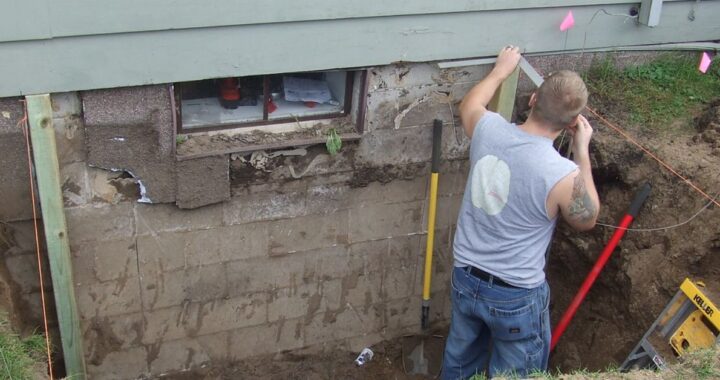Understanding Egress Window Well Requirements in Denver, Colorado
If your home or property in Colorado has an underground basement, the importance of an egress window cannot be understated. As a home inspector, I regularly encounter basements with no egress windows, or egress windows that do not adhere to Colorado’s regulations.
An egress window in the basement of your Colorado home serves two primary functions: 1. Restricting external access into the homeowner’s basement for security reasons, and 2. Allowing home occupants an easy escape in the case of a fire.
Whether you already have an egress window in your basement, or you’re considering installing one for safety reasons, it’s important to understand Denver’s regulations to be sure your home is safe and compliant.
Denver’s Six Minimum Requirements for Egress Windows:
- A minimum window height of 24 inches.
- A minimum window width of 20 inches.
- The distance from the floor to the bottom of the exit cannot exceed 44 inches.
- The exit must offer a net clear opening of at least 5.7 square feet. (Exception: Below-grade or grade-floor exits require a net clear opening of at least five feet.)
- Occupants must be able to readily open the window from inside the room without the need for special knowledge, keys, or tools.
- The exit must lead to a yard, public area, or court.
These requirements are for the sake of ease of use of these emergency windows. However, Denver also has several requirements for designated egress window wells.
Denver’s Six Minimum Requirements for Egress Window Wells:
- Window wells must possess a horizontal area of at least nine square feet.
- Window wells must feature a horizontal projection and width of no less than 36 inches. The large size of the egress window well is meant to be sufficient for residents to escape as well as firefighters to enter in case of fire.
- Covers, bars, grilles, or screens (though not required but highly recommended for the safety of your family, pets, neighbors, and wildlife – see my article on window well coverings here) must be operable without the use of a key, tool, or special knowledge. In the case of a fire, home occupants must act quickly to escape, while the stress of the situation, as well as smoke inhalation, increases confusion and difficulty. Many unfortunate homeowners have died in fires because they couldn’t open their window well coverings in time. The best window well coverings lift away easily while still preventing accidents.
- Adequate drainage must be provided connecting with the home’s foundational drain system. When basement window wells are not properly sealed and drained, basement flooding occurs. This is one of the more common reasons for basement flooding in Colorado.
- Window wells exceeding a vertical depth of 44 inches must incorporate permanently affixed steps or ladders.
- Window wells must be sufficiently spacious to allow for the full opening of the egress window without obstruction.
Again, the most important concern with egress window wells is that the occupants can escape quickly and easily in the confusion of a fire. The stipulation regarding window well covers, bars, grilles, and screens holds particular significance. Some window wells may have welded bars or locks requiring keys for operation. However, such arrangements are deemed hazardous and non-compliant with Colorado code as they impede timely evacuation during emergencies.
Emergency Escape and Rescue Openings:
In Colorado, in instances where a home lacks a designated egress window for the basement, existing windows may serve as emergency escapes and rescue openings, provided they meet specific criteria:
- A minimum net clear width of 20 inches.
- A minimum net clear height of 22 inches.
While these requirements are less stringent than those for new egress windows, they are nonetheless designed to facilitate safe evacuation during emergencies. Should homeowners opt to replace existing basement windows, the replacements must adhere to Colorado’s regulations for egress windows.
Exceptions to Egress Window Requirements:
Though Denver’s building codes generally mandate emergency escape windows, there is one exception: Basements measuring less than 200 square feet, designated solely for storage, are not obliged to have egress windows.
It’s essential to note that adherence to this exception necessitates strict usage of basements exclusively for storage purposes under normal circumstances. Any utilization of the basement as a sleeping area mandates compliance with Denver’s requirement for at least one egress window. In any situation where an occupant might use a basement room as a bedroom, living space, or office, the homeowner should install an egress window for safety.
Is Your Denver Home Compliant with Egress Window Regulations?
While egress window requirements in Denver may appear daunting, they serve a vital purpose. Egress windows not only ensure safe evacuation during emergencies but also enhance the basement’s livability by allowing natural light and fresh air to enter. If your home is lacking this important fixture, considering installing one right away. You may reach out to JDS Home Inspection Services of Denver, Colorado for our list of recommended contractors.
Resources:

